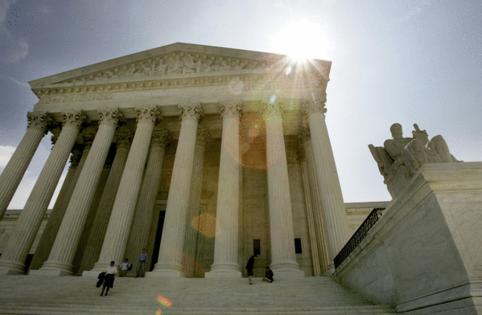Supreme Court wipes out anti-corruption law that bars officials from taking gifts for past favors
Published in News & Features
WASHINGTON — The Supreme Court on Wednesday struck down part of a federal anti-corruption law that makes it a crime for state and local officials to take gifts valued at more than $5,000 from a donor who had previously been awarded lucrative contracts or other government benefits thanks to the efforts of the official.
By a 6-3 vote, the justices overturned the conviction of a former Indiana mayor who asked for and took a $13,000 payment from the owners of a local truck dealership after he helped them win $1.1 million in city contracts for the purchase of garbage trucks.
In ruling for the former mayor, the justices drew a distinction between bribery, which requires proof of an illegal deal, and a gratuity that can be a gift or a reward for a past favor. They said the officials may be charged and prosecuted for bribery, but not for taking money for past favors if there was no proof of an illicit deal.
“The question in this case is whether (the federal law) also makes it a crime for state and local officials to accept gratuities — for example, gift cards, lunches, plaques, books, framed photos or the like — that may be given as a token of appreciation after the official act. The answer is no,” said Justice Brett M. Kavanaugh, writing for the majority.
Despite his reference to token gifts such as lunches and framed photos, the federal law was triggered only by payments of more than $5,000.
But the court’s conservative majority said the law in question was a “bribery statute, not a gratuities law.” Kavanaugh said federal law “leaves it to state and local governments to regulate gratuities to state and local officials.”
Justices Elena Kagan, Sonia Sotomayor and Ketanji Brown Jackson dissented.
“Officials who use their public positions for private gain threaten the integrity of our most important institutions,” Jackson wrote in dissent.
She said the mayor’s “absurd and atextual reading of the statute is one only today’s court could love.”
The law as written “poses no genuine threat to common gift giving,” she said, but it “clearly covers the kind of corrupt (albeit perhaps non-quid pro quo) payment (the mayor) solicited after steering the city contracts to the dealership.”
...continued
©2024 Los Angeles Times. Visit at latimes.com. Distributed by Tribune Content Agency, LLC.







Comments